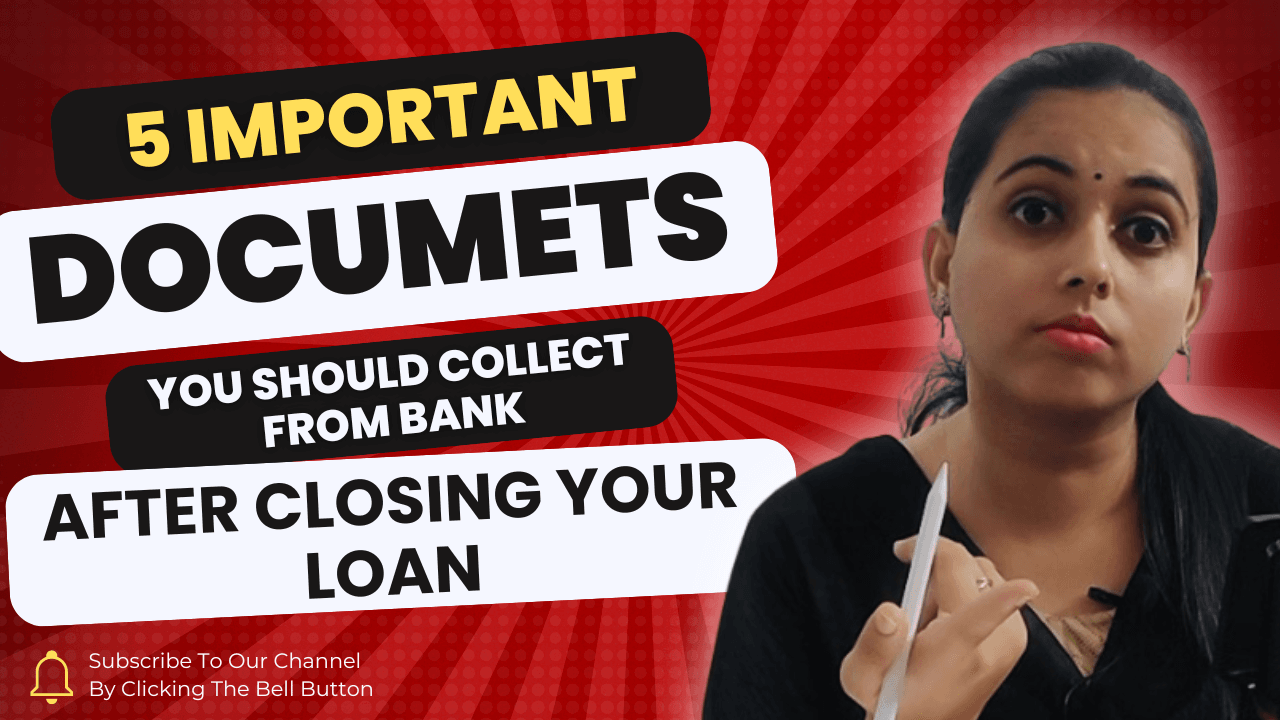5 Important Documents to Collect from Your Bank After Closing a Loan
5 Important Documents to Collect from Your Bank After Closing a Loan Congratulations on paying off your loan! Whether it’s a home loan, car loan, or personal loan, closing a loan is a huge milestone. However, closing the loan is not the final step—there are essential documents that you need to collect from your bank to ensure everything is properly recorded. Missing out on any of these documents could cause issues down the line, so it’s crucial to know exactly what to ask for.
Here’s a detailed breakdown of the 5 important documents you should collect from your bank after closing your loan:
Loan Closing Statement
5 Important Documents to Collect from Your Bank After Closing a Loan The loan closing statement is one of the most critical documents you need to collect after settling your loan. It serves as an official confirmation from the bank that your loan has been fully paid off. 5 Important Documents to Collect from Your Bank After Closing a Loan This document provides detailed information about the final settlement amount, the outstanding balance (if any), and any interest or fees that were applied during the last payment.
– Why is it important?
The loan closing statement acts as proof that your loan has been officially closed and no dues remain. This will be helpful if there are any disputes in the future regarding the loan.5 Important Documents to Collect from Your Bank After Closing a Loan
What to check?
5 Important Documents to Collect from Your Bank After Closing a Loan Ensure the statement includes the loan account number, the final payment date, and a stamp from the bank stating that the loan has been closed.
No Objection Certificate (NOC)
The No Objection Certificate (NOC) is another crucial document that you must collect. This certificate is issued by the bank once your loan is closed and confirms that the lender no longer holds any rights or claims over the asset financed through the loan.
Why is it important?
The NOC is an official statement from the bank stating that they have no further claims on the property or asset (like your car or home). It legally confirms that your dues are fully paid, and the asset is now free from any lien by the lender.
What to check?
Ensure that the NOC includes important details such as your name, loan account number, property/asset details, and the date on which the loan was closed.
Collect Original Documents (Within 30 Days)
When you take a loan, especially a secured loan like a home or car loan, the bank keeps your original property or asset documents as collateral. 5 Important Documents to Collect from Your Bank After Closing a Loan After closing the loan, it’s essential to collect these original documents back from the bank.
Why is it important?
Your original property documents (such as the sale deed, title deed, or vehicle registration papers) are necessary for legal purposes and future transactions. If these documents are not collected within 30 days, there may be delays or risks of them getting misplaced.
What to check?
Ensure you receive all the original documents you submitted during the loan process. Check if they are in proper condition and signed or stamped by the bank wherever necessary.
Hypothecation Removal (For Car Loans)
If you had taken a car loan, your vehicle is likely hypothecated to the bank during the loan tenure. Hypothecation means that the bank has a legal right over your car until the loan is fully repaid. After the loan closure, you need to initiate the process to remove the hypothecation from your vehicle.
Why is it important?
Without removing the hypothecation, you may not have full ownership rights over the vehicle. This is also important for selling the car in the future, as the registration certificate (RC) will still show the bank as the financer if the hypothecation is not removed.5 Important Documents to Collect from Your Bank After Closing a Loan
Disclaimer:
The materials provided herein are solely for information purposes. No attorney-client relationship is created when you access or use the site or the materials. The information presented on this site does not constitute legal or professional advice and should not be relied upon for such purposes or used as a substitute for legal advice from an attorney licensed in your state
For More Information :https://taxgyany.com/

